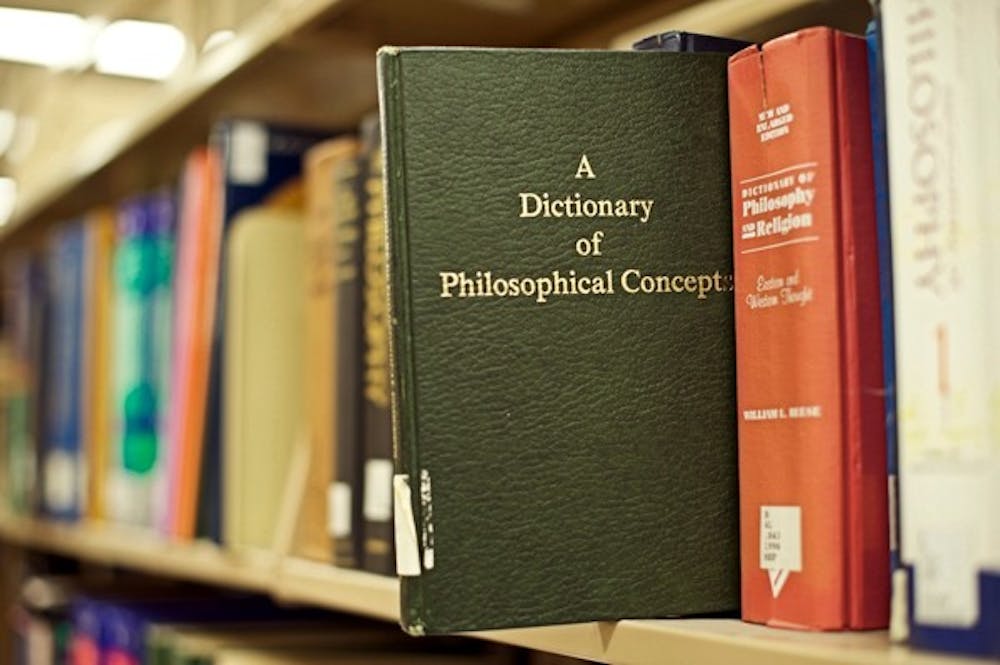Though sometimes questioned about its practicality, researchers say majoring in philosophy prepares students for a future in a critically and analytically challenged job market.
Philosophy develops good habits of thought that help to reconcile the facts behind reason, said John Devlin, a philosophy lecturer and ASU professor. Being able to reconcile evidence and reason becomes necessary when working with people and dealing with problems, he said.
“You learn the difference between having thoughts and having reasons. You learn the difference between whether and argument is any good and whether the conclusion is even true,” Devlin said.
Philosophers develop a familiarity with resolving issues that others may lack, said Margaret Walker, Lincoln Professor of Ethics in the School of Historical, Philosophical, and Religious Studies, who has continuously worked toward theories that resolved the aftermath of political violence in South Africa.
“You have to be willing to inform yourself and be aware of the concrete factual dimensions of any issue before you target the problem,” Walker said.
Philosophy, unlike many fields of study, teaches how to analyze an issue and reason with a clarified interpretation, she said.
“You learn different things in different academic concentrations, but being able to read, reason and defend views is something you need in every aspect of life,” Walk said.
Terrence Hill, a philosophy junior, said he realizes the importance of a philosophical background and studying the liberal arts and sciences develops universal discipline.
“With philosophy, I don’t have to follow one path like certain other majors,” Hill said. “I have learned to think abstractly. Prior to being a philosophy major, in a lot of my other classes, you can only configure something one way. With philosophy, you are more flexible in problem solving.”
Philosophy requires a demand for clarity and develops the ability to honestly acknowledge objections against one’s own conclusions, Devlin said.
Adam Brody, a philosophy junior, emphasizes that first conclusions may not be the most developed.
“Philosophy makes you consider alternative explanations. You have to consider alternative solutions before you make concrete solutions. It makes you more open minded,” Brody said. “After I finish my undergraduate work, I plan to go to graduate school and get my Ph.D. in philosophy in order to continue my studies.”
Hill said he plans to continue his interest in philosophy in an alternative way.
“I plan to go to law school and take an interest in securities law. Philosophy will help me become more contextually involved with cases. I will be able to argue for or against anything by taking what I learned in philosophy and applying it to any situation,” he said.
Holistically, philosophy creates the ability to decipher and develop concrete arguments, said Devlin.
“We train people not to be too content with their first answers. We try to clarify our views and parts so it’s easy for others to see our mistakes. It’s easy for us to spot them, but it’s easy for others to spot them too,” Devlin said.
This humbling idea can create the necessary skills to be more authentic in any situation that requires critical reasoning and helps to promote communication, he said.
“You learn a conversation between two people isn’t about who wins but rather coming to a spot where no one started. You learn how to make distinctions and why distinctions matter,” Devlin said. “Philosophy creates a willingness to be curious, relentlessly curious.”
Reach the reporter at asjohn10@asu.edu





